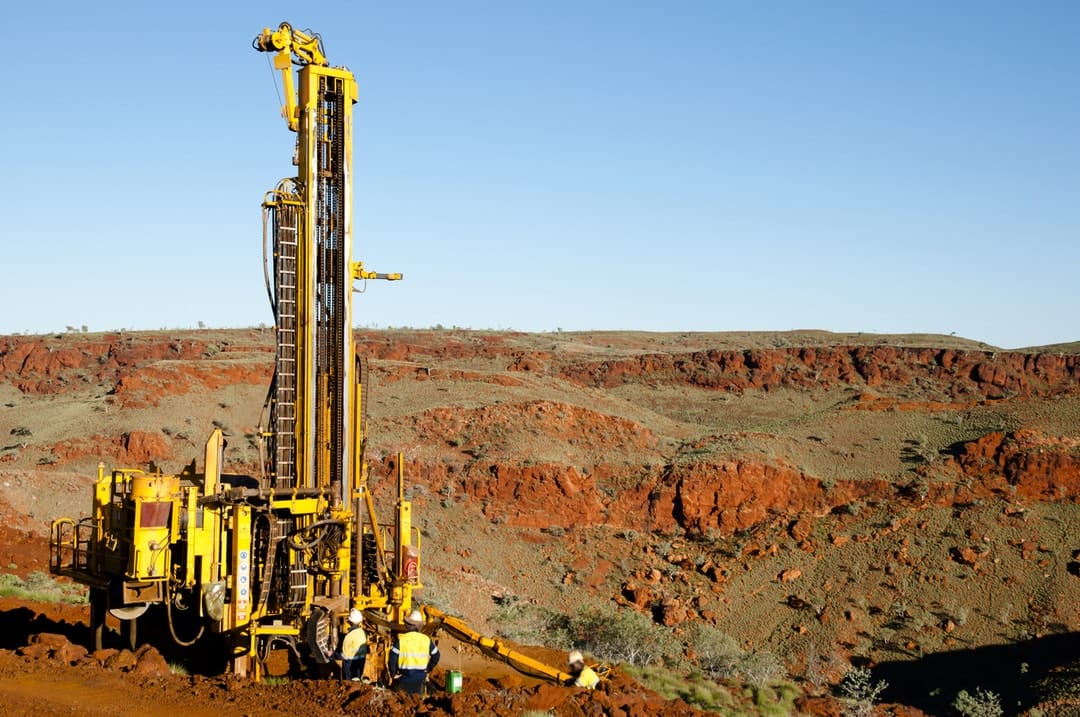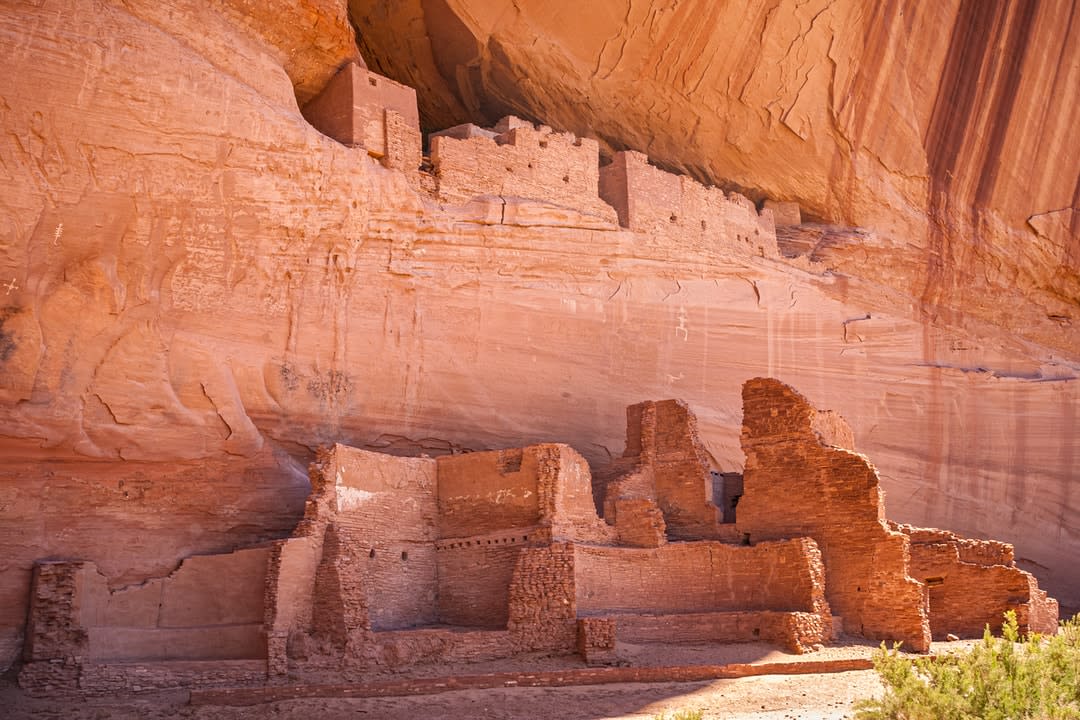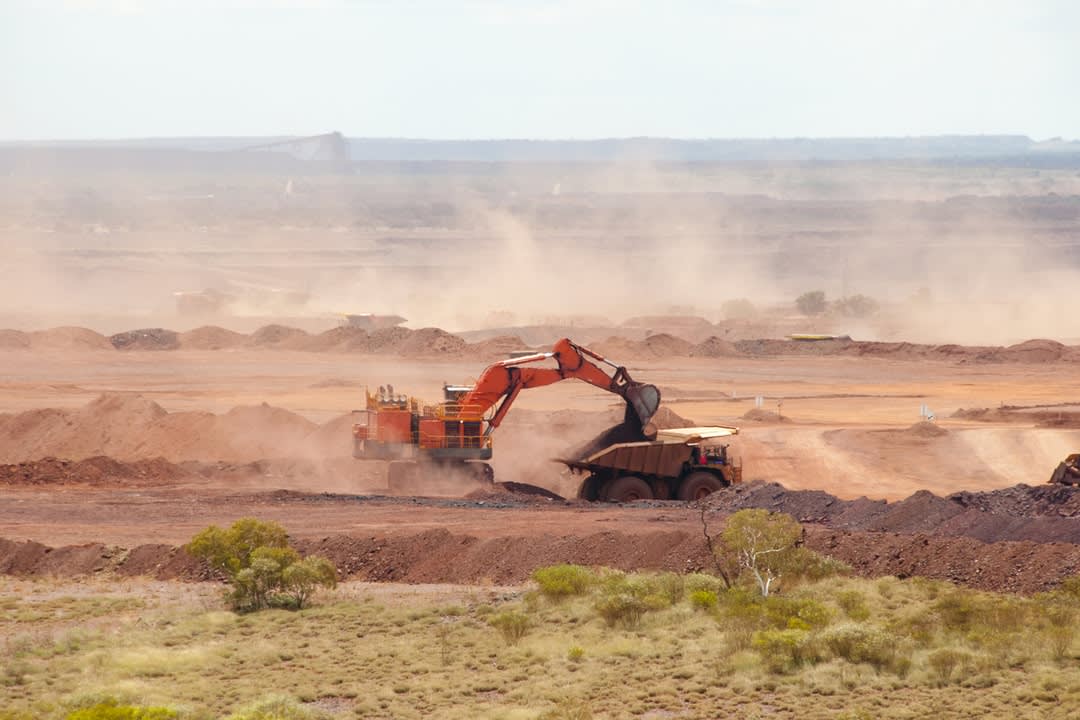
Rio Tinto’s destruction of rock shelters at the Juukan Gorge in the Pilbara region of Western Australia is a tragedy and a disgrace, irrespective of its legality.
When I try to consider the scope of the economic, cultural and spiritual loss, I'm reminded of a location not far from where I grew up in eastern Arizona.
Canyon de Chelly is sacred to Navajo people, and has been occupied across thousands of years. Rather than being blown up, it's been developed into a popular tourist attraction, bringing much-needed economic activity to the region, and Navajo control over the site has enabled them to invite tourists in ways that protect and preserve a way of life for the families who still live in the canyon.

The rock shelters at Juukan Gorge, which had been continuously occupied for 46,000 years, should have been studied, shared, developed, or just treasured, as its traditional owners would deem fit. Its destruction is a loss of incalculable magnitude. This is a case of significant corporate wrongdoing, even if there is no legal liability.
As I write this, the family living in the apartment directly below me has been observing the High Holy Days, some of the most solemn and important days of the Jewish calendar. Through my window, I catch melodies of prayers calling humanity to turn back from evil ways and from the injustice of which we are guilty.
This period, culminating in Yom Kippur on 28 September, is a time to meditate on the harm we cause others, express our repentance, make amends to those who have been harmed, and resolve not to repeat harmful behaviour.
Corporations may not be capable of feeling shame or remorse, but they can do the kinds of action that we associate with repentance.
Despite the recent news that some executives would step down, some statements of apology, and what Rio Tinto describes as their "working closely with the PKKP people", as a part of its commitment to "listening, learning and changing", Rio Tinto has not yet made amends for its actions, and so its statements of apology ring flat.
The individuals who have lost their jobs, golden parachutes notwithstanding, are not the only ones to blame. As corporations are granted legal personality (meaning that they are given the capacity to act and be treated as a "person" under law), they, and not just the people who work for them, must be accountable for their wrongdoing.
Without the capacity to feel pain or fear an angry deity, corporations have the power to cause harm, but not the capacity to feel it.

Although Rio Tinto "deeply regret[s] the events at Juukan Gorge and have unreservedly apologised to the Puutu Kunti Kurrama and Pinikura people (PKKP)", the demonstration of that regret fails to focus on the people actually harmed. Among other things, the company promises to increase the number of Indigenous people it hires, including for senior positions, and expresses its desire to find a way to give a greater voice to traditional owners in the decision-making process in relation to mining on their land".
These weak commitments fail to account for the specific harm it inflicted.
Simply employing Indigenous people, or even appointing an Indigenous person to the board, as others suggest, does little or nothing for Kuutu Kunti Kurrama and Pinikura peoples. Certainly, companies such as Rio Tinto should commit to equitable hiring practices, support equitable access to education for students from underrepresented backgrounds, increase the diversity of boards, and give voice to traditional owners of lands they intend to use for mining. But these general moral obligations do not satisfy the specific moral debt they owe the Puutu Kunti Kurrama and Pinikura peoples.
If a construction company was to accidentally damage the Sistine Chapel, it would not avoid liability by inviting a bishop to join the board; it would be required to pay for the repair.
Taking stock of moral bankruptcy
Rio Tinto should give the PKKP Aboriginal Corporation, which administers the traditional lands and waters of the Puutu Kunti Kurrama people and the Pinikura people, a 5% to 20% interest in the company.
An equity stake in the company is the best kind of atonement for corporate wrongdoing, because it is best for the victims, best for innocent stakeholders, and best at deterring future wrongdoing. Nothing less than a significant share of ownership in the company itself would begin to give the Puutu Kunti Kurrama and Pinikura peoples adequate compensation for the massive loss they have suffered.
Furthermore, an equity stake (whether awarded through a new issuance or from existing stock held by the company) allows for organic, meaningful change within the company that does not unduly impact other parties’ rights.

Even with the negative publicity, this seems an admission that the company, which orients itself to the furtherance of those shareholders’ wellbeing, cannot be trusted not to destroy more priceless locations bearing witness to thousands of years of human heritage.
The shareholders are similarly acknowledging the actions taken so far in response are insufficient to make amends. Although shareholders do not make day-to-day decisions, they are the people the board is meant to answer to, and these calls for review suggest that under the watch of the board they elected, things have gone quite off-track from a moral perspective.
Providing those who have been most impacted by the moral failing with decision-making authority resolves this problem more effectively than any of the other proposed solutions.
Accordingly, the best solution is for the PKKP Aboriginal Corporation to have sufficient equity that it will have leverage to influence not just one member of the board, but the board’s overall composition. This solution is the one most likely to prevent Rio Tinto from blowing up even more sacred sites, requires no action by lawmakers or courts, does not put employee or trade partners’ rights at risk, and is significant enough to constitute real amends.

Shareholders have a right to elect board members, and while they can bring actions against companies to enforce directors’ duties, board members are not agents of shareholders, nor do they owe obedience to any interest group within the company.
That being said, if shareholders are unhappy with directors, they can vote to remove them from the board. Boards of directors enjoy ultimate control over company assets and outputs, and are charged with balancing the sometimes-conflicting claims and interests of the many groups (shareholders, employees, management, customers, suppliers, etc).
A corporation’s character for trustworthiness, compliance with law, and care for community reflects the character of its management, which is appointed by the board.
Beyond the law
If we want companies that do more than comply with the exact letter of the law, but feel an obligation to improve society, to be ethical for the sake of doing what is right, then management and the board alike need to feel a sense of moral obligation to all corporate stakeholders and the wider community. Because directors, and thus managers, usually try to advance the interests of their shareholders, one way to make sure that companies have concern with the wellbeing and interests of society more broadly is to have a plurality of shareholders who directly benefit from the company’s caring for the community.
If the PKKP Aboriginal Corporation had, say, 15% of the shares of Rio Tinto, it could likely ensure at least one of its most preferred candidates could join the board and block its least preferred candidates, which provides the entire board with incentives to select management likely to attend to issues important to the PKKP Aboriginal Corporation. This benefits the direct victims of harm, but indirectly, it also results in the concerns of Indigenous communities more broadly and transparently being centred in the company agenda in a way they had not previously been.
Shares in Rio Tinto, then, are an appropriate form of compensation, because they come with power to influence the company’s operations without undue negative impacts on other stakeholders.
Rather than regulations or requirements imposed on the company, they are embedded goals; ways to serve the interests and preferences of a significant shareholder.
Amends consisting of an award of equity not only recognise the magnitude of the harm and prevent future harms, they also have little or no negative impacts on innocent parties.
Any impact on employees or trade partners would be the result of board or management decisions. Any change in corporate activity would be merely a function of change in corporate strategy, unlikely to detrimentally impact the rights of employees or contract parties. Any dilution of share price is likely to be temporary, just as any significant reform is likely to have at least a temporary impact on share price. Thus, even existing shareholders are unlikely to suffer any real injury.
Corporations may not be capable of feeling shame or remorse, but they can do the kinds of action that we associate with repentance.
Just as would be the case if the Sistine Chapel or Canyon de Chelly were to be irreparably destroyed, there is no price that could be put to the value of the Juukan Gorge. Shares in Rio Tinto, then, are an appropriate form of compensation, because they come with power to influence the company’s operations without undue negative impacts on other stakeholders.
With a sufficient stake in the company, the PKKP Aboriginal Corporation, which already is owned by and established to benefit the Puutu Kunti Kurrama and Pinikura people, could influence the entire composition of the board. Alternatively, it could decide to sell its shares and distribute the proceeds among its members.
Giving the PKKP Aboriginal Corporation a significant share of Rio Tinto empowers the specific individuals harmed by Rio Tinto to make their own determinations about what compensation is best for them – it respects their agency as traditional owners, is an effective deterrent, and has minimal impact on the rights of other stakeholders.
A couple of days ago, I mentioned the general argument of this piece to my neighbours (from a safe distance, as we were outside). On the day before Yom Kippur, they wrote to me about Maimonides, the Jewish philosopher, rabbi, and doctor’s admonition that there is no divine absolution for harms unless amends have been made with the hurt party. Rio Tinto may have no legal obligation to the PKKP Aboriginal Corporation, but it does have a moral one.
It can, and should, offer a substantial equity stake as amends for its wrongdoing.





